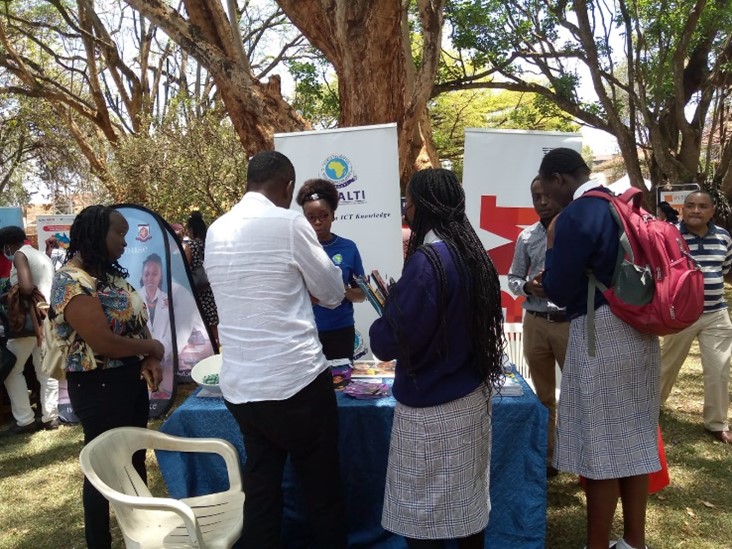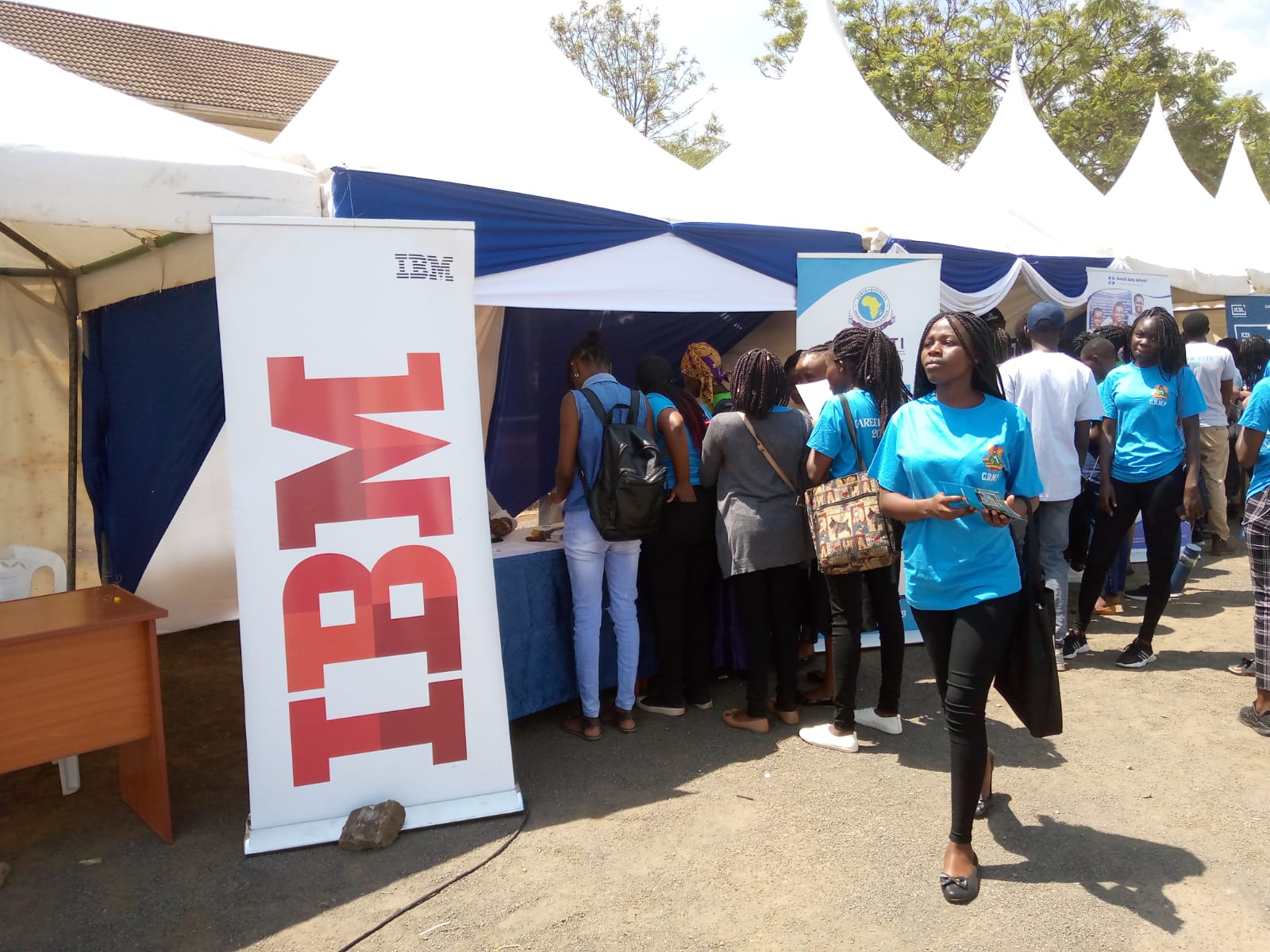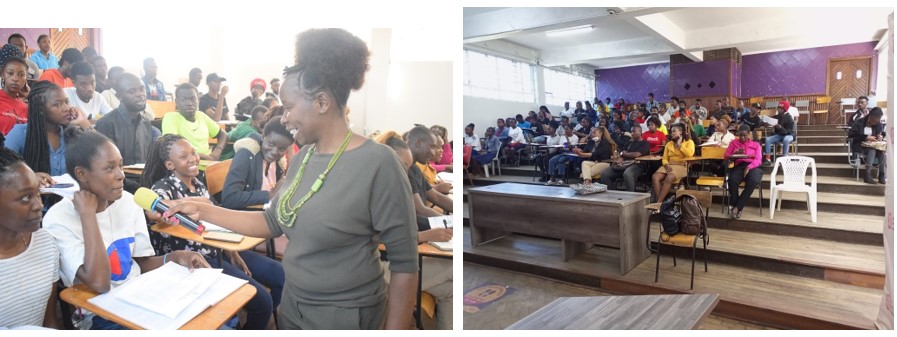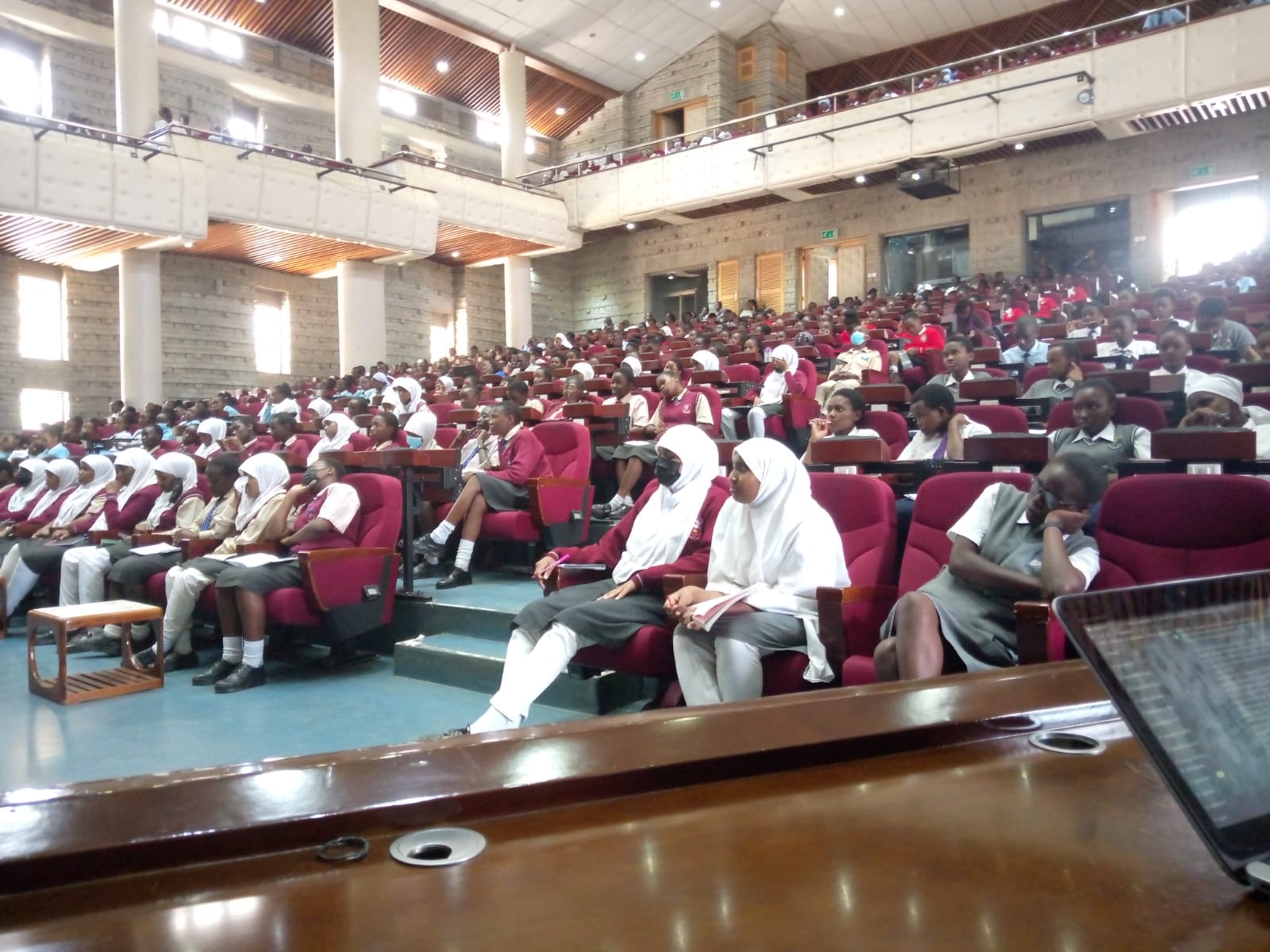Empowering Youth in Africa with Digital skills
Active
This programme aims to empower 50,000 Kenyan youth with Digital Skills, Professional and Problem-Solving and Entrepreneurship skills. The targeted youth are between 14 to 25 years old from high schools or recent high school graduates.
The programme offers young people a 20-hour guided training with a flexible learning model. In Kenya, with the support of IBM, AFRALTI has partnered with the Government, universities and colleges, public and private schools, faith-based organizations, and community-based institutions.
Entity
Partners
-
IBM
Private sector
Financial and/or in-kind contribution
Sustainable Development Goals & targets
-
4.3 By 2030, ensure equal access for all women and men to affordable and quality technical, vocational and tertiary education, including university
-
4.4 By 2030, substantially increase the number of youth and adults who have relevant skills, including technical and vocational skills, for employment, decent jobs and entrepreneurship
-
4.7 By 2030, ensure that all learners acquire the knowledge and skills needed to promote sustainable development, including, among others, through education for sustainable development and sustainable lifestyles, human rights, gender equality, promotion of a culture of peace and non-violence, global citizenship and appreciation of cultural diversity and of culture's contribution to sustainable development
-
4.a Build and upgrade education facilities that are child, disability and gender sensitive and provide safe, non-violent, inclusive and effective learning environments for all
-
8.3 Promote development-oriented policies that support productive activities, decent job creation, entrepreneurship, creativity and innovation, and encourage the formalization and growth of micro-, small- and medium-sized enterprises, including through access to financial services
-
8.5 By 2030, achieve full and productive employment and decent work for all women and men, including for young people and persons with disabilities, and equal pay for work of equal value
-
8.6 By 2020, substantially reduce the proportion of youth not in employment, education or training
-
9.5 Enhance scientific research, upgrade the technological capabilities of industrial sectors in all countries, in particular developing countries, including, by 2030, encouraging innovation and substantially increasing the number of research and development workers per 1 million people and public and private research and development spending
-
9.a Facilitate sustainable and resilient infrastructure development in developing countries through enhanced financial, technological and technical support to African countries, least developed countries, landlocked developing countries and small island developing States
-
9.b Support domestic technology development, research and innovation in developing countries, including by ensuring a conducive policy environment for, inter alia, industrial diversification and value addition to commodities
-
9.c Significantly increase access to information and communications technology and strive to provide universal and affordable access to the Internet in least developed countries by 2020
Achievement At Glance
SKILLS BUILD FOR STUDENTS is a programme designed to empower half a million young African young girls and boys till so far we have empowered 3,899 youths in Kenya by introducing them to Digital Skills, Professional and Problem-Solving skills and Entrepreneurship.
We empowered the youth by exposing them to current ICT knowledge and prepared them for ICT innovations and careers opportunities.
The youth learnt technical skills (artificial intelligence, cybersecurity, quantum computing) as well as problem-solving and entrepreneurial skills.
Key Highlight On Guiding Principle
By incorporating emerging technologies in our training program.
By empowering the youth with entepreneurship skills for them to fit in the current market.
We also empower them with soft skills.
description
The innovotive intervention adopts a robust open digital learning system which allows unlimited number of learners. The system tracks the learning progress of individual learners.
AFRALTI is composed of eight African Member Countries. As the innovative programme starts in Kenya, the other Member Countries will likely replicate it thereby scaling up the innovative model. AFRALTI will work with an innovation ecosystem comprised of governments, development partners, NGOs, corporates, and faith-based Institutions. The ecosystem will allow us to reach a broad youth population in Africa.
To enhance scalability, consistent monitoring and evaluation of the innovation progress will be done during the implementation. The progress data will be collected and evaluated to determine what works and what doesn't. AFRALTI will identify lessons learned and apply the knowledge in reaching more students.
Since this innovation aligns with AFRALTI's vision of developing human capacity for Africa, it is expected to recieve required internal support for ensuring its sustainability. Supported by the entire organization, the staff apply their creativity to scale up the innovation.
With a pool of 500 students currently benefiting from this innovation, governments, non-governmental organizations and the public may develop interest and provide more support for the project thereby boosting its success and sustainability.
https://www.afralti.org/open-ptech/
https://www.facebook.com/AFRALTI/
https://twitter.com/AFRALTI
https://www.instagram.com/afralti_org/
https://www.afralti.org/afralti-career-talks-on-the-go/
https://www.afralti.org/young-women-for-the-digital-economy/
Deliverables and links to SDG targets
-
50,000 young people trained in relevant skills, including technical and vocational skills, ICT skills and soft skills
4.4 By 2030, substantially increase the number of youth and adults who have relevant skills, including technical and vocational skills, for employment, decent jobs and entrepreneurship
The start-up program will focus on leveraging emerging technologies to innovate solutions that positively impact the lives of the African youth population and beyond. The courses include Artificial Intelligence, Block Chain, Cyber Security, Data Science, Machine Learning, Critical thinking and Entrepreneurship.
BY: Jan 2022
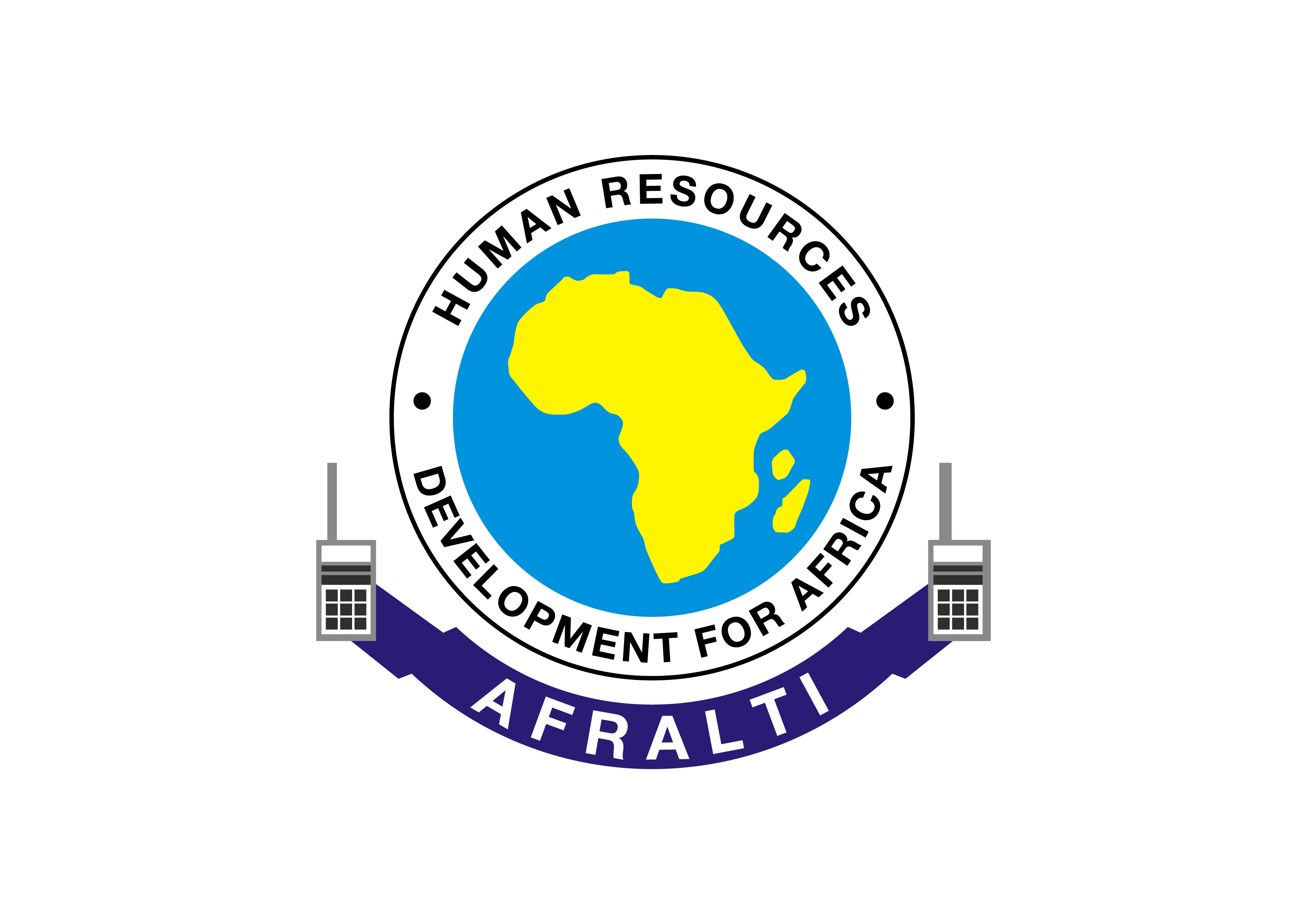
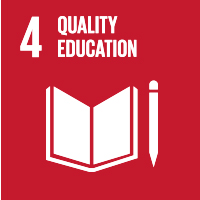
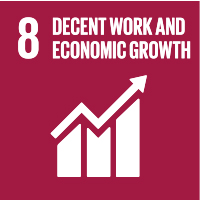
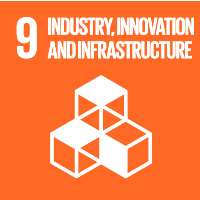
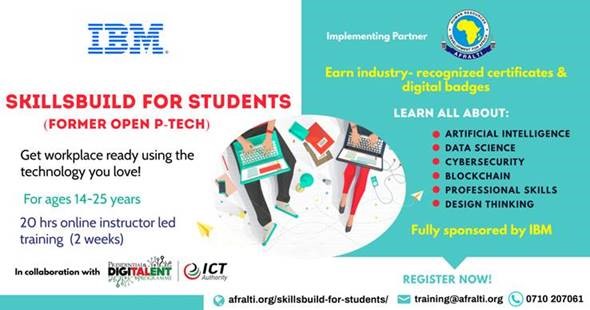
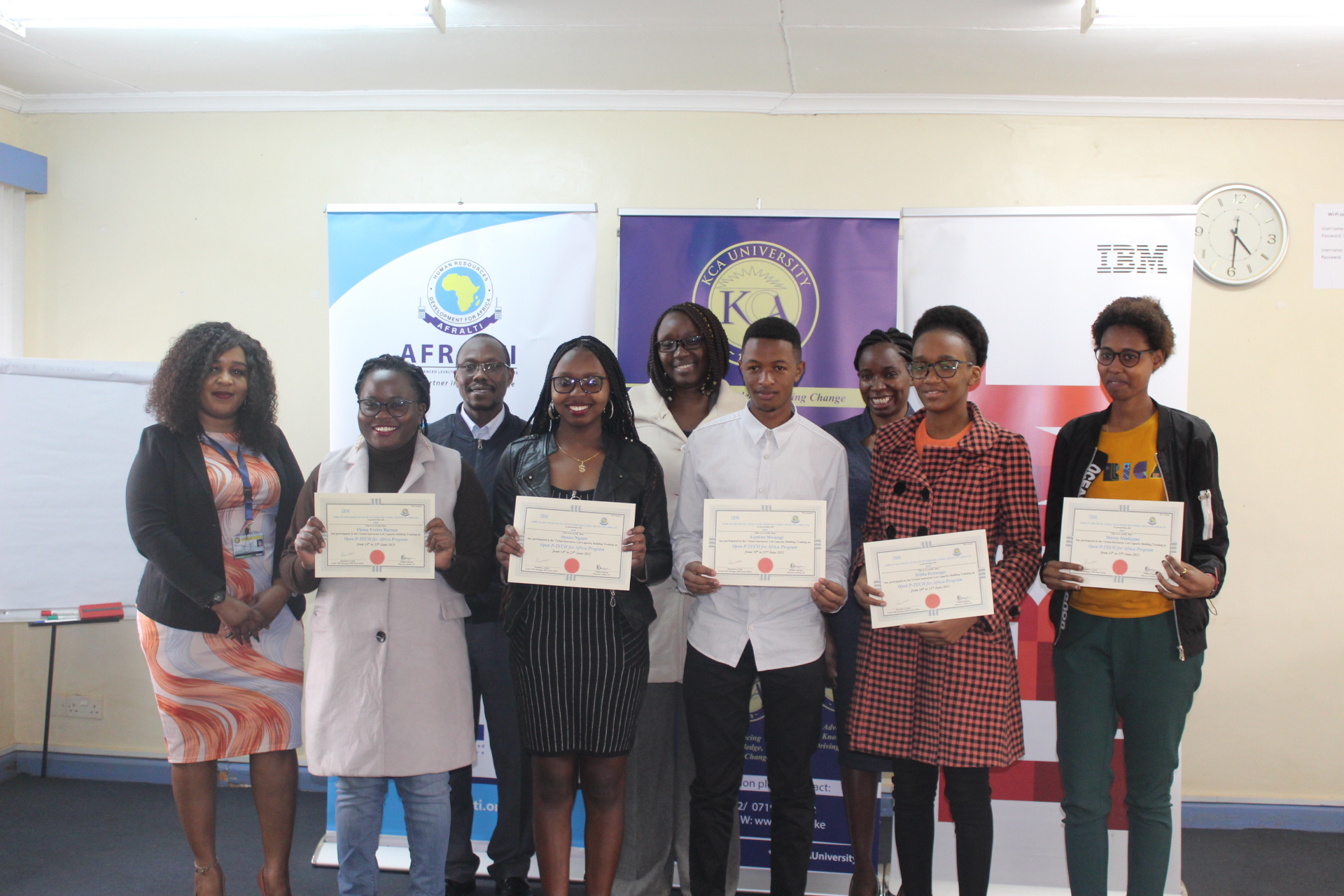
.jpg)
